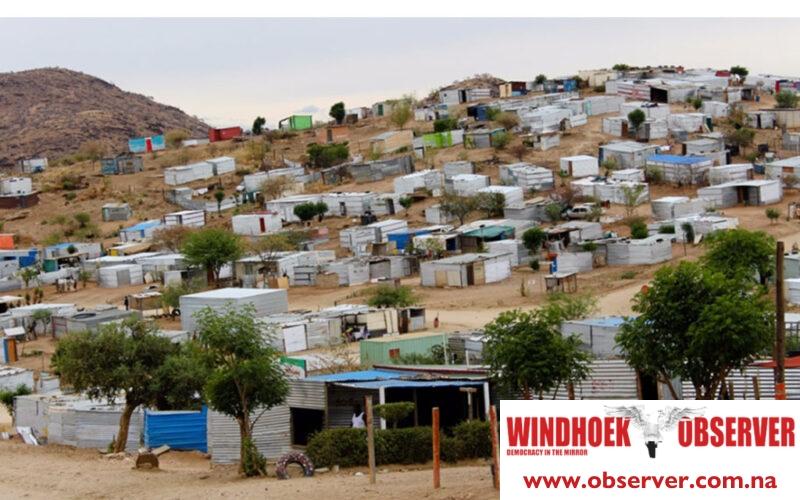Stefanus Nashama
In support of splitting the Samora Machel constituency into two parts, the residents of Goreangab informal settlement said they are willing to forgo any development that may arise from the creation of a new constituency.
This includes moving or relocating to allow the construction of infrastructure like hospitals and schools, constituency offices, police stations, standard marketplaces, roads, sports fields, and many other services.
An official from the constituency office held a meeting with the residents at the Handino Hishongwa Community Centre in Goreangab on Saturday.
The meeting was set to discuss the demarcation and the name of a new constituency.
“We are prepared to make sacrifices and move to any location in order to support the future development of the new constituency for the sake of our children,” said Selma David, a community leader of more than 40 houses (shacks).
Simon Shigwedha, a resident of Handino Hishongwa for more than 30 years, encouraged residents not to fear the demarcation of a new constituency, as it will bring services closer to the community.
“I have been here for many years. Before many of you. What we are discussing here is important. We want a new constituency. We want government services to reach us. Let us be ready for any challenge that will come with the creation of a new constituency, even if we have to leave our shacks to allow for development for our kids,” Simon said.
He used the example of the Kavango region, which was divided into two regions because only one side used to receive development, but now all parts of the Kavango area receive the same level of service.
The residents expressed that they are not getting services because the constituency is too large.
The meeting proposed and voted on four names for the new constituency. The se were Hage Geingob, Goreangab Dam, Hadino Hishongwa, and John ya Otto Nankudhu.
Hadino Hishongwa received the most votes, while John ya Otto Nankudhu came in second with only a few votes difference.
If approved, a new constituency will bear one of those two names.
They are proposing a new constituency demarcation that would encompass the entire Goreangab informal settlement, stretching from Ongos, Havana, 4 Ways, to Goreangab, 4 Ways, through Matsitsi Street.
During the meeting, nobody objected to the proposal to establish a new electoral district.
The Samora Machel constituency is the country’s largest, with over 90 000 residents, the majority of whom live in the Goreangab informal settlement.
The population increase is a result of urban migration.
The officials who facilitated the meeting said they were instructed by the president’s office to submit a proposed name for a new constituency and the number of residents who agreed to its establishment.
In that regard, they must return to the community and meet the requirements for the new constituency’s approval.
“We are not politicians; we are officials from the constituency office. We are here to record what you are saying and submit it back to the president. This meeting has nothing to do with politics or political parties. It is for the benefit of the community as a whole,” Festus Amupanda, who chaired the meeting, explained.
Nestor Kalola, the councillor for the Samora Machel constituency, who was also present at the meeting, expressed support for allowing the residents to decide what they want for themselves.
He posed the question of whether the residents if approved, would be prepared to relocate to other constituencies to facilitate the demarcation and infrastructure construction for the new one.
“The issue is that while some people may express a desire for a new constituency, they may be unwilling to relocate when asked to do so. This is a valid concern. If a new constituency is established, individuals should be willing and able to move,” said Kalola.
He pointed out that there were plans for new roads to be constructed through Goreangab, but when residents were told to move, they did not comply.
This, he said, blocks such development and services to the community.
“You will come back to me and say what you were saying is true. Sometimes, residents reject the order by the municipality, which blocks development,” the councillor stated.
According to the Namibian Constitution, each region should only have a minimum of six or a maximum of 12 constituencies.
The Khomas region currently only has 10 constituencies.




